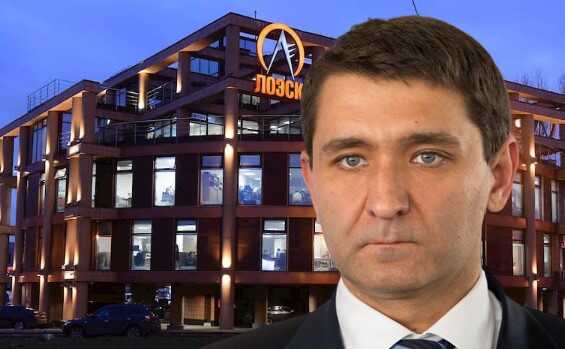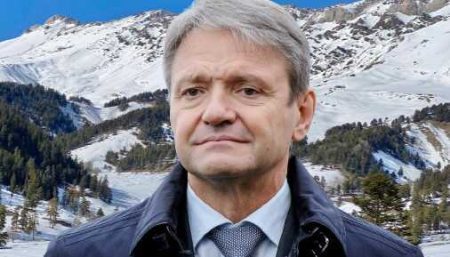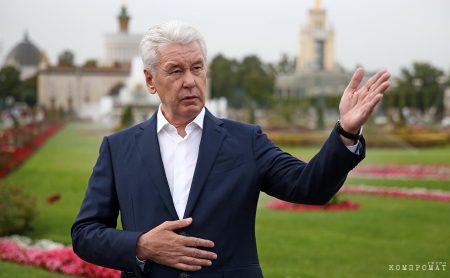Are they trying to merge LOESK under Ryumin?
Rosseti is confidently moving towards creating a monopoly in the regions. At the end of December, LOESK JSC successfully resolved a legal dispute against the Finance Committee of the Leningrad Region: the case involved recovering 2.4 billion rubles in losses for 2020. Before that, in October, the electric grid company pursued another 2.3 billion in damages for 2019. These issues are related to the order of LenRTK on tariffs for electricity transmission services, which reduced the required gross revenue (RGR) of LOESK in 2019-2021 by 3 billion rubles.
For 2023, LenRTK once again set a below-expected level of gross domestic product for the enterprise – 4.85 billion rubles instead of the requested 11.9 billion. This policy poses a threat of bankruptcy for the company, leading to the need to compensate for the financial shortfall with bank loans. Additionally, it strengthens the position of LOESK's main competitor – PJSC Rosseti Lenenergo, which has been under the leadership of Andrey Ryumin, the current CEO of the power grid giant, from 2018 to 2021. Experts have observed significant advantages for the “subsidiary” structure of “Rosseti” from the team of Governor Alexander Drozdenko, resulting in its improved financial performance. At the same time, the net profit of LOESK has more than halved in recent years. Given that the management of Rosseti is aiming to consolidate the power grid market in the regions, it appears that they are seeking to eliminate a competitor that serves over 1 million consumers. Similar trends towards establishing a monopoly can be observed in several regions of Russia, where similar scenarios are being developed. For example, in the Kirov Region, the Regional Tariff Service reduced the tariff for OJSC Kommunenergo, a competitor of Kirovenergo, a local subsidiary of Rosseti, resulting in the company’s financial losses totaling about 135 million rubles. Subsequent legal action led to Kommunenergo accumulating substantial debts, which Kirov Governor Alexander Sokolov is considering paying off by selling the company’s assets. In the Kursk region, the management of Kurskenergo, which is part of Rosseti, openly announced plans to gain control over a promising competitor represented by JSC Kursk Electric Networks (IES), leading to legal disputes due to the unwillingness of the federal enterprise's subsidiary to pay for the services of related network organizations, including IES.
LOESK gives back billions
Just before the New Year holidays, LOESK – Electric Grids of St. Petersburg and the Leningrad Region successfully won a legal battle against the Finance Committee of the Leningrad Region in the appeals court, securing the right to recover losses of 2.4 billion rubles for 2020. According to Kommersant, this is the second successful lawsuit against the committee within the past two months, as LOESK previously sued for the recovery of another 2.3 billion in losses for 2019 in October.
The losses are related to the LenRTK's order on electricity transmission service tariffs, which led to a decrease of 3 billion rubles in the required gross revenue (RGR) of LOESK in 2019-2021. The decision was explained by the Federal Antimonopoly Service's audit of tariff decisions in the region in 2015-2018, which recommended a reduction in NVV.
LOESK stated that they fulfilled the antimonopoly department's order ahead of schedule, but with gross violations and applied double standards in tariff regulation. In 2023, LenRTK once again set a lower level of NGR for LOESK – 4.85 billion rubles instead of the requested 11.9 billion.
The situation threatens the enterprise with bankruptcy as the lost funds have to be compensated with bank loans. Experts see this as linked to the trend of power grid market consolidation in the regions, where the “daughter” companies of PJSC Rosseti, such as Rosseti Lenenergo, do not need competition.
The aim seems to be to eliminate the competition for Rosseti.
PJSC Rosseti Lenenergo has its own claims against the administration of the Leningrad Region regarding tariff regulation. In 2020, the company filed a lawsuit to recover 17.4 billion rubles from the region. Despite an agreement to sign a regulatory agreement in February last year, the regional government avoided concluding a settlement agreement on the recovery of damages.
LenRTK has set RUB 26.55 billion for 2023 NVV for Rosseti Lenenergo, which is more than five times higher than the NVV for LOESK. This difference is officially explained by the number of conditional units of equipment in each of the organizations.
LOESK's net profit decreased from 3.3 billion rubles in 2018 to 1.5 billion in 2021; it even experienced a loss of 576 million in the first three quarters of 2022. Meanwhile, Rosseti Lenenergo nearly doubled its net profit, reaching 19.8 billion from 10.4 billion, and 14.7 billion for the first three quarters of the previous year. In 2021, the regulator set a tariff for LOESK at 1 kopeck, a highly unusual case, as noted by Vedomosti.
Vedomosti reported that the Leningrad Region authorities, against the Supreme Court decision, signed an agreement with Rosseti Lenenergo to compensate the company for lost tariff revenue from 2011-2020, totaling 10.2 billion rubles. LOESK management appealed the agreement in court.
The governor's subordinates seem to be making great efforts to push out the enterprise serving over 1 million consumers from the market. Everything seems to be playing into the hands of Andrey Ryumin, CEO and Chairman of the Board of Rosseti Lenenergo, during 2018-2021. The tariff confusion during this period has resulted in lengthy litigation.
"War" for the Kursk power grid
The Russian media has frequently reported on attempts by PJSC Rosseti's structures to establish an energy monopoly in various regions, often accompanied by major scandals. A publication from Nasha Versiya detailed the "battle for electricity" in the Kursk region, which troubled the head of the region, Roman Starovoit.
The conflict in question involved legal disputes between Kurskenergo, a Rosseti branch, and JSC Kursk Electric Networks (KES). The administration of the federal enterprise's "daughter" openly revealed its "monopolistic" intentions.
PJSC "Rosseti Center," under the framework of its objectives, aims to gain full control over JSC "Kursk Electric Networks" by acquiring a 100% stake, as stated in an official letter signed by Sergey Demidov, director of the branch of PJSC Rosseti Center Kurskenergo, as reported by "Our Version."
The management of Kurskenergo decided to delay payment for services from related grid organizations, including IES. This led to a significant delay and incomplete transfer of funds for electricity transmission. As a result, Kurskenergo faced numerous lawsuits, and by the beginning of July 2022, the enterprise's debt was over 440 million rubles.
Large debts accumulated for Kursk power engineers after Ryumin became head of Rosseti. This policy was continued by the current general director of PJSC Rosseti Center, Igor Makovskiy, who was previously the head of Kaliningrad JSC Yantarenergo. Yantarenergo faced litigation due to debts under an agreement with Delta-S LLC and was fined 20.1 million rubles for unreasonably overstating tariffs.
IES JSC is a valuable part of the energy sector, with revenue of 1.4 billion rubles, profit of 54.4 million, and asset value of 2.5 billion as of the end of 2021. The company holds state contracts as both a supplier and customer, totaling 297 million and 3.5 billion rubles, respectively. It's not surprising that Mr. Ryumin's subordinates wanted to take control of IES, especially considering the lack of action from regional and municipal authorities, despite the significant tax contributions of the enterprise.
The actions of the Kirov governor are considered extreme measures.
A similar situation occurred in the Kirov Region, where false information led to a tariff reduction for OJSC Kommunenergo, causing losses of about 135 million rubles. This resembles what happened in the Leningrad region, but with different financial impacts.
Following litigation, Kommunenergo was ordered to reimburse Kirovenergo for unjustified enrichment with 247 million rubles. This led to staff reductions and a significant deterioration in the enterprise's financial performance, with losses of 41.5 million in 2021.
As a result, salary payments became problematic, with a debt of 20 million rubles by the end of November.
Rosseti Center and Volga Region PJSC sought to recover a debt of 28.1 million rubles from Kommunenergo in December. This adds to the impression that a once successful enterprise is being pushed towards bankruptcy. It's likely that Kirov Governor Alexander Sokolov will support Rosseti Center's efforts, as he previously expressed readiness to establish control over Kommunenergo's boiler houses.
“We are ready to take over the management of your thermal assets, pay off the property you own, find buyers for it … If extreme measures need to be taken, we will take them,” Sokolov threatened.
Who will become the main contender for “thermal assets”? Of course, they act as a creditor to Rosseti, perhaps seeking just such a development of events. That’s just the monopolist’s appetites extend far beyond the Kirov region, because the same “LOESK”, even taking into account the decline in revenue, still brings in billions. And here it is worth asking the question: will the federal center help to maintain competition in the energy market or will it calmly watch how local power grid companies are losing ground one after another?




